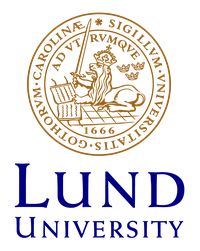Invited Speakers
Theory speakers:
Hubert Ebert (Ludwig-Maximilian Universität, München, Germany) is an expert on the first-principles computation of magnetic properties of strongly correlated systems and their spectroscopic properties.
Silvia Picozzi (Consiglio Nazionale delle Ricerche (CNR-SPIN), Chieti, Italy) is a leading expert in the application of first-principles calculations to the study of structural, electronic and magnetic properties of advanced materials, including transition metal oxides and organic materials.
Anna Delin's (KTH Royal Institute of Technology, Stockholm, Sweden) research focuses on multi-scale modeling, first-principles calculations, method development related to spin dynamics (AD1) and spin, and heat and charge transport properties (AD2). An overall goal of her research is to develop materials and technologies for sustainable development.
Igor A. Abrikosov’s (Linköping University, Linköping, Sweden) research covers a broad spectrum of fundamental problems within theoretical solid-state physics, such as electronic, thermodynamic (IA1), and magnetic properties of disordered systems, random alloys, surfaces and interfaces, and materials relevant for industrial applications (IA2).
Silke Biermann (Ecole Politechnique, Universite Paris-Saclay, Palaiseau, France) is a theoretical condensed matter physicist who has made significant contributions in the field of first-principles electronic structure of strongly correlated systems.
Gianluca Stefanucci (University of Tor Vergata, Rome, Italy) is a world leading expert in Nonequilibrium Green’s Function approaches to time-dependent quantum transport (GS1), and in (Non)equilibrium Many-body Perturbation Theory (GS2). He coauthored the book Nonequilibrium Many-Body Theory of Quantum Systems.
Experimentalist Speakers:
Liu Hao Tjeng (Max Planck Institute for Chemical Physics of Solids, Dresden, Germany) is one of the pioneers in the spectroscopy of transition metal oxides, a very important class of materials known to be strongly correlated with rich and intriguing properties, expected to be the basic materials for future electronics. His works have a large impact on the understanding of the electronic structure of these strongly correlated materials.
Anders Mikkelsen (Lund University, Lund, Sweden) is the spokesperson of the x-ray beamline (NanoMAX) at the MAX IV Laboratory in Lund. His research focuses on understanding the interplay between function, structure, and growth of low dimensional objects, from the micrometer down to the atomic scale, from the second to attosecond scale and is moving towards realistic synthesis and device operation environments.
Mechthild Enderle (Institut Laue-Langevin, Grenoble, France) is one of the world leaders in neutron scattering experiments in low-dimensional exotic spin systems. Her contributions in this field have deepened the understanding of the excitation spectra of these highly interesting spin systems.
Pascale Deen (European Spallation Source, Lund, Sweden and University of Copenhagen, Copenhagen, Denmark) is an expert in magnetometry, and x-rays and neutrons spectroscopic techniques. Her research interests includes the studies of dynamics of frustrated magnetic order, spin glasses and disorder, and heavy fermion behavior.
Industry speakers
Anders Blom (QuantumWise, Sweden) is Chief Customer Officer at QuantumWise, and heads the world-wide sales, marketing and support team. Anders received his PhD in theoretical physics from Lund University, Sweden, in 2003, and is a specialist in applying quantum modeling to advanced semiconductor devices.
Dook van Mechelen (ABB Corporate Research, Switzerland) is an experimental physicist particularly known for his pioneering role in the application of Terahertz spectroscopy in the process industry. His work is marked by the uncommon pairing of basic research in the fields of disordered materials and correlated electron systems with the development of industrial optical sensors.



